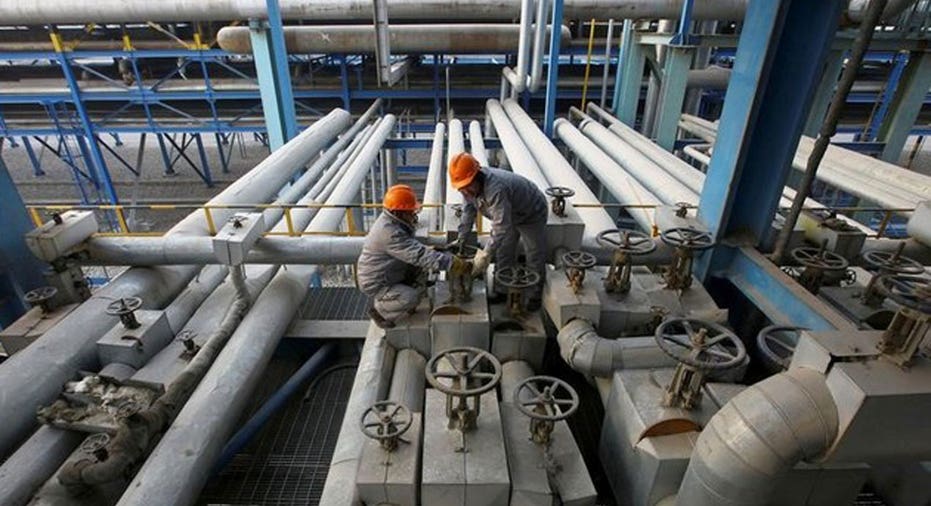Oil regains some poise after 3 percent drop

(Reuters)
Oil inched up on Thursday, paring some of the previous day's steep price slide, after the first round of U.S. sanctions against Iran came into effect, although confidence in crude demand has been hit by the escalating China-U.S. trade dispute.
Brent crude futures were up 14 cents at $72.42 barrel by 0855 GMT, after having dropped by more than 3 percent on Wednesday. U.S. crude futures rose 8 cents to $67.02 a barrel, having closed down 3.2 percent the day before.
"The market is supported by concerns the sanctions on Iran are going to reduce Iranian supply," said Tony Nunan, oil risk manager at Mitsubishi in Tokyo.
"The geopolitical risk from Iran is keeping a floor under the price," he said.
The United States on Tuesday reimposed sanctions on Iran, the third-biggest producer in the Organization of the Petroleum Exporting Countries.
The renewed sanctions won't directly target Iranian oil until November, although U.S. President Donald Trump has said he wants as many countries as possible to cut their imports of Iranian crude to zero.
"The impact of it is the greatest known unknown of the year. If worst comes to worst and 1.5-2 million bpd of Iranian disappears from the market ... calculations will go out of the window and oil bears will have to brace themselves for a very rough ride," PVM Oil Associates analyst Tamas Varga said.
As part of its most recent retaliation against Washington in the mounting trade dispute, China will impose tariffs of 25 percent on a further $16 billion in U.S. imports, which will affect trade in goods from fuel and steel products to autos and medical equipment. Crude oil will be exempt.
The ongoing trade war is rattling global markets and investors fear any slowdown in the world's two largest economies would slash demand for commodities.
On top of the impact on the broader global economy, there is growing worry in the crude oil market about Chinese demand. Crude imports picked up in July after two months of decline, but were still among the lowest this year due to a drop-off in demand from smaller independent refineries.
The U.S. Energy Information Administration, meanwhile, reported that crude inventories fell 1.4 million barrels in the latest week, less than half the 3.3 million-barrel draw analysts had expected.
Gasoline stocks rose by 2.9 million barrels, compared with expectations for a drop of 1.7 million-barrel drop, as forecast in a Reuters poll.
In another sign that exporters are preparing for slower demand from some of the big Asian buyers, Iraq cut its official selling price for September cargoes of Basra Light crude for its Asian customers on Thursday.
(Additional reporting by Aaron Sheldrick in TOKYO; Editing by David Evans)



















